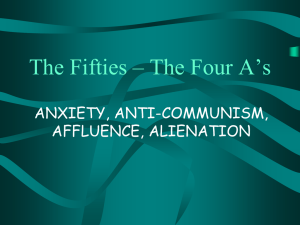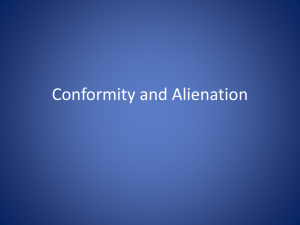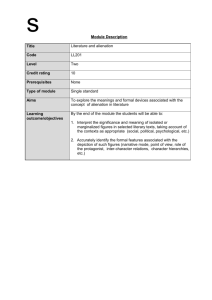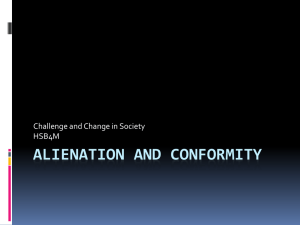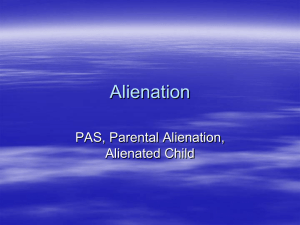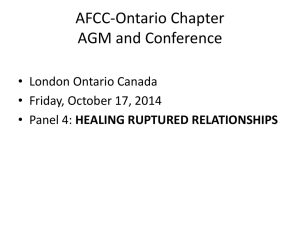CONFORMITY AND ALIENATION
advertisement
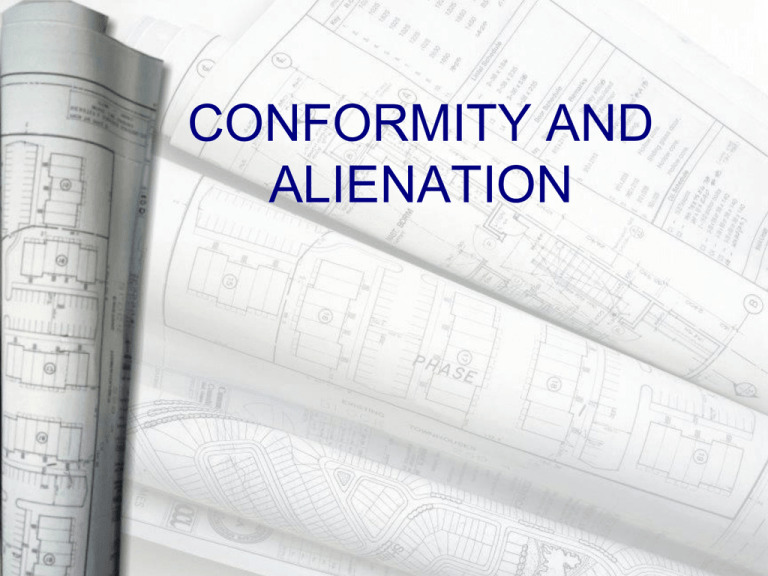
CONFORMITY AND ALIENATION Alienation ▸ Alienation is defined to mean emotional dissociation and isolation and is marked by an inability to follow the rules of society or share in the values in society. ▸ Alienation is said to occur because people have difficulty adapting to societal change Alienation Emile Durkheim ▸ Durkheim lived in a society in tremendous state of change (industrial revolution) ▸ Used the term “anomie” to describe the condition of industrial workers who seemed to live without any roots or norms Alienation Karl Marx ▸ Wrote about alienation of the proletariat (working people) and the lumpenproletariat (unemployed people) ▸ Said they could not reach their full human potential when so many aspects of their lives are controlled by others (paid employment, decent housing) Alienation Contemporary Examples Of Alienation ▸ Joining of cults or gangs ▸ Anarchy/ Extremism - set out to destroy the society which they live through armed struggle ▸ Terrorists Conformity ▸ Conformity can be defined as adjusting one's behavior or thinking to match other people. ▸ Many reasons why people conform, including the desire to be accepted by others Conformity ▸ Informational Influence- is the human desire to accept information that another admired person tells us is valid ▸ Parent or friend tell you that smoking is bad for your health Conformity ▸ Normative Influence- is the pressure to conform to the positive expectations of other. ▸ E.g. some people take jobs because they feel like they are expected to. Alienation And Conformity Forces Of Social Change ▸ Alienation can cause positive change ▸ Women’s movement was about change because of disatisfaction with social roles Alienation And Conformity Forces Of Social Change ▸ Conformity has a tendency to discourage social change. ▸ E.g trying a new hairstyle ▸ Nervous about reaction of others stifles desire to change


